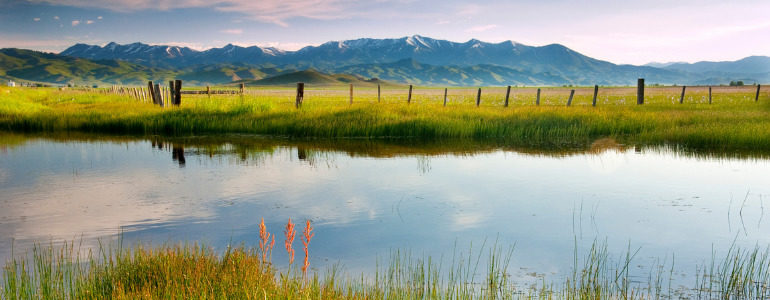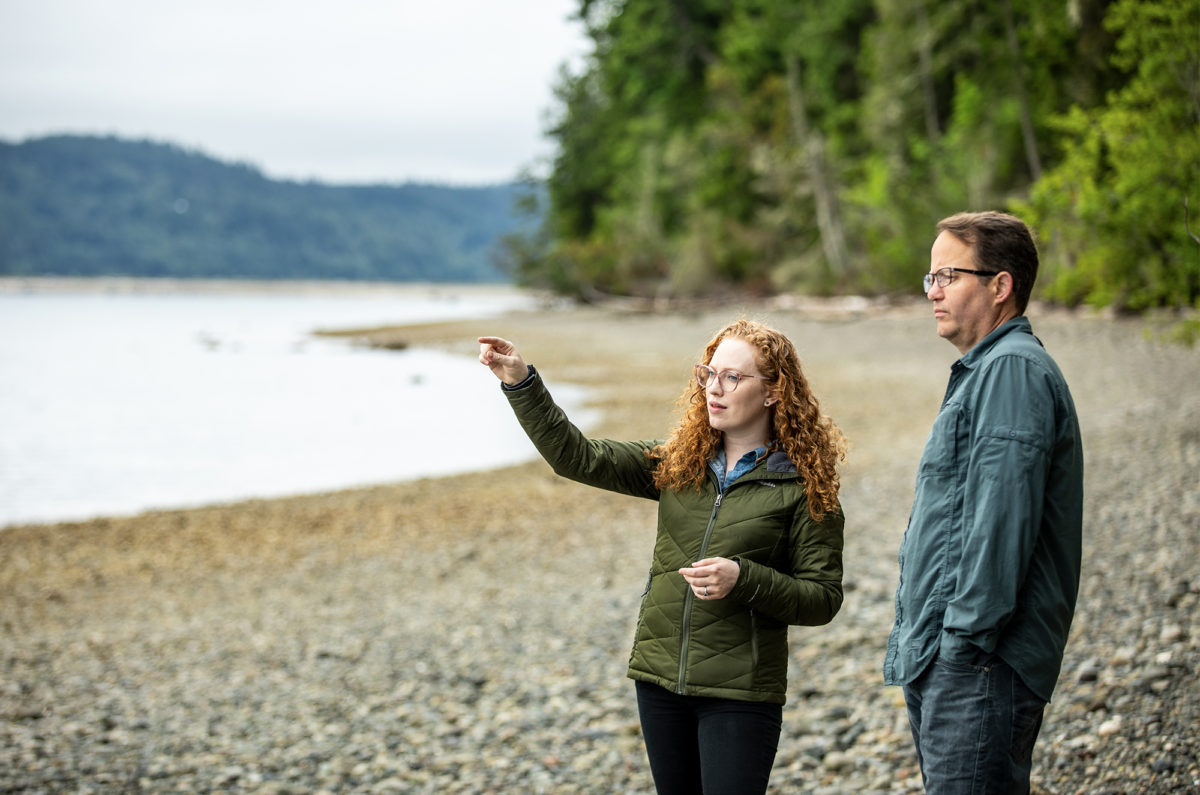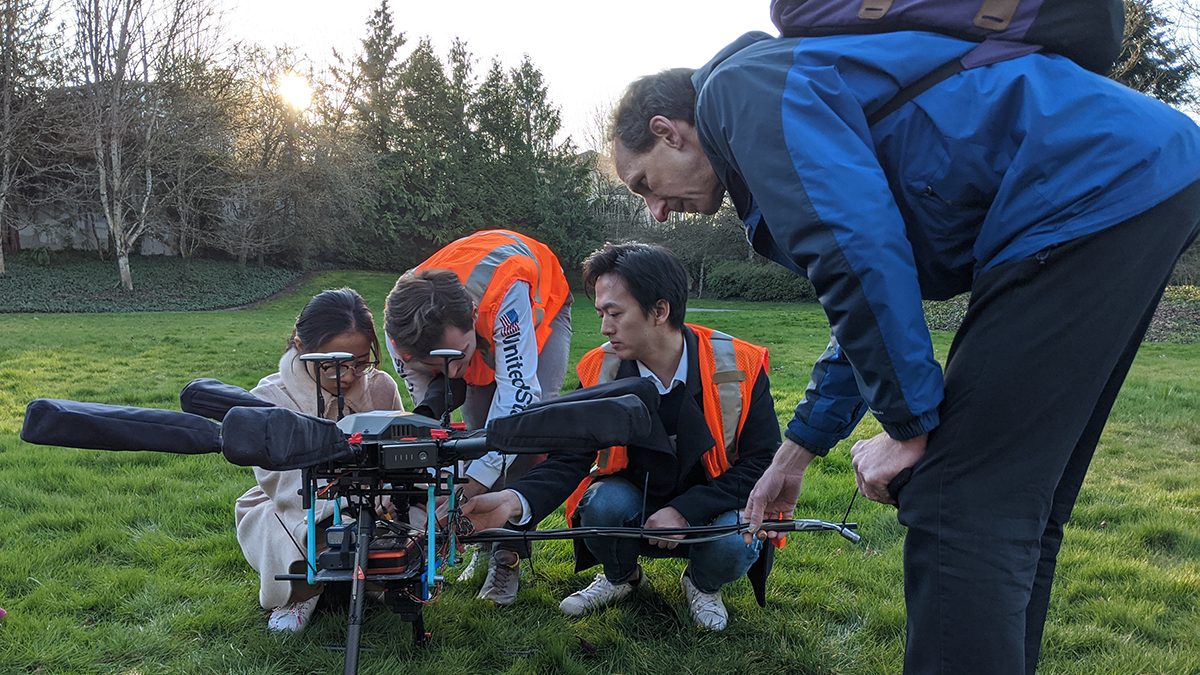Cohort 3 Projects
The EarthLab Innovations Grant Program was launched in 2019 to fund actionable environmental research. The 2022-23 EarthLab Innovation Grants program received 33 high-quality proposals for research at the intersection of climate change and social justice. Proposals were evaluated by an 11-member review committee that included faculty and staff from several disciplines and a community member from outside the UW. The following programs were each awarded up to $75,000 to generate equitable and actionable science and knowledge that make a positive impact on people and communities. The award period lasts 16 months and final products are due by September 30, 2023.
Centering Place and Community to Address Climate Change and Social Justice
The Shoalwater Bay Indian Tribe, like numerous other coastal communities, is currently grappling with the challenges brought about by climate change, including rising sea levels and ecosystem-related threats. This community-based participatory action research project aims to develop sustainable and culturally relevant strategies for expanding the Tribe’s infrastructure and housing to higher elevation land adjacent to the reservation, due to the Tribe’s location on a rapidly eroding stretch of the US Pacific coastline. This initiative draws on traditional ecological knowledge and scientific modeling, involve various stakeholders, and result in recommendations for sustainable building prototypes, benefiting not only the Tribe but also other vulnerable coastal communities facing climate adaptation challenges.
Seattle Assessment of Public Health Preparedness and Response (SASPER): Duwamish Valley pilot project
Climate change disproportionately and unjustly affects communities of color, populations with lower incomes, and indigenous peoples. Disparities in wealth, income, social support and health status limit the capacity of individuals within these communities to prepare for and cope with climate impacts. Moreover, systemic racism and social marginalization limit political capital and voice of such communities in resilience planning. Over the past several years, flooding events in Seattle’s own Duwamish Valley (DV) have become more frequent and severe, and the area is expected to be among the city’s hardest hit by sea level rise. In partnership with the City, Duwamish Valley Community Coalition, and state and local public health agencies, this team is conducting a “Seattle Assessment of Public Health Emergency Response” (SASPER), building on the CDC’s Community Assessment for Public Health Preparedness (CASPER) door-to-door survey methodology for pre- and post-disaster needs assessments, to identify and document household- and community-level climate change and health impacts and access to and needs for information and resources to promote resilience, as well as to provide pathways for community input into ongoing climate change adaptation planning.
Cultural Ecosystems in a Changing World: Building a Network Across the Northwest to Support Food Sovereignty, Climate Adaptation and Land Rights
This project brings together an interdisciplinary team of Indigenous and non-Indigenous scholars and community members from Washington State and British Columbia to convene the Salish Sea Cultural Ecosystems Knowledge Sharing Network. Pacific Northwest cultural ecosystems include forest gardens, camas prairies, mountain huckleberry meadows, and estuarine root gardens. These systems have been stewarded by Indigenous peoples for millenia and are central to their livelihoods and food systems. Many Indigenous cultivation practices that sustain these ecosystems–such as fire regimes or regular harvesting–have been suppressed in the US and Canada. Despite these disruptions, a growing number of Pacific Northwest Indigenous communities are revitalizing these ecosystems as part of their food sovereignty initiatives. The purpose of the Network is to connect Indigenous Nations and researchers who are engaged in cultural ecosystem and climate change impact research to support these efforts.
Hunting for Healing: An Academic and Colville Nation Collaboration Seeking to Examine Traditional Food Sources in Light of Environmental Changes
The academic partners, Dr. Derek Jennings (Anishinaabe Sac & Fox, Degiha Sioux Quapaw) and Dr. Michael Spencer (Kānaka Maoli/Native Hawaiian) and student, Benally, are seeking to partner with the Confederated Colville Nation Traditional Territories Advisor, John Sirios (Colville) to address traditional forms of diet as related to land, health, and climate change. This exploratory study will identify barriers and supports for traditional food practices in the face of climate change. It will further provide the basis for future land and health interventions, as well food sovereignty, in tracking and revitalizing traditional foods, as guided by the voices of the community. This project further has applicability to other tribal nations who are also facing climate change and a change in traditional food practices, which could improve overall health and social justice.
The Housing Spectrum, Temperature Extremes and the Costs of Thermal Safety and Comfort: A Community-Informed Policy Evaluation of Weatherization and Energy Assistance Programs
This project addresses a basic but fundamental question faced disproportionately by the Seattle area’s least-resourced residents: how to stay dry enough, warm enough, or cool enough to be healthy, comfortable, and alive amid increasing climate and temperature extremes. As a changing climate brings with it the likelihood of more frequent extreme weather and temperature events, policymakers worldwide are pursuing climate adaptation strategies to improve the resilience of public and private systems and infrastructure. This project focuses on the methods, challenges, and costs of achieving thermal comfort and safety amid increasing temperature extremes faced by people living on the cusp of very low-rent housing and improvised housing (including people living in RVs, tents, temporary shelters, etc.) This is at the intersection of energy transition and resilience impacts, which sits at the very heart of what can make or break a “just transition.”
Reverse Redlining
Zip codes remain a remarkable predictor of life expectancy in the United States. The law has played an unflattering role in shaping that reality. In particular, legal frameworks – redlining, mortgage lending practices, environmental siting of industrial and waste facilities – have combined over time to create a disturbing pattern of health disparities across the United States. It is a pattern in which communities of color and low-income communities bear the brunt of environmental pollution and the associated health consequences. And though some efforts have been made to address environmental justice issues in law, those efforts have made little progress in undoing the systemic patterns of health inequities across communities. This project – Reverse Redlining – is driven by community demand and participation. It uses the tools of environmental health, community engagement, and law to reduce existing environmental health disparities and build community resilience in adapting to the health effects of climate hazards. At its core, the project designs a regulatory response to protect areas facing disproportionate environmental health risks from further harm by prohibiting new environmental burdens of disease until the community has achieved certain acceptable health metrics.







